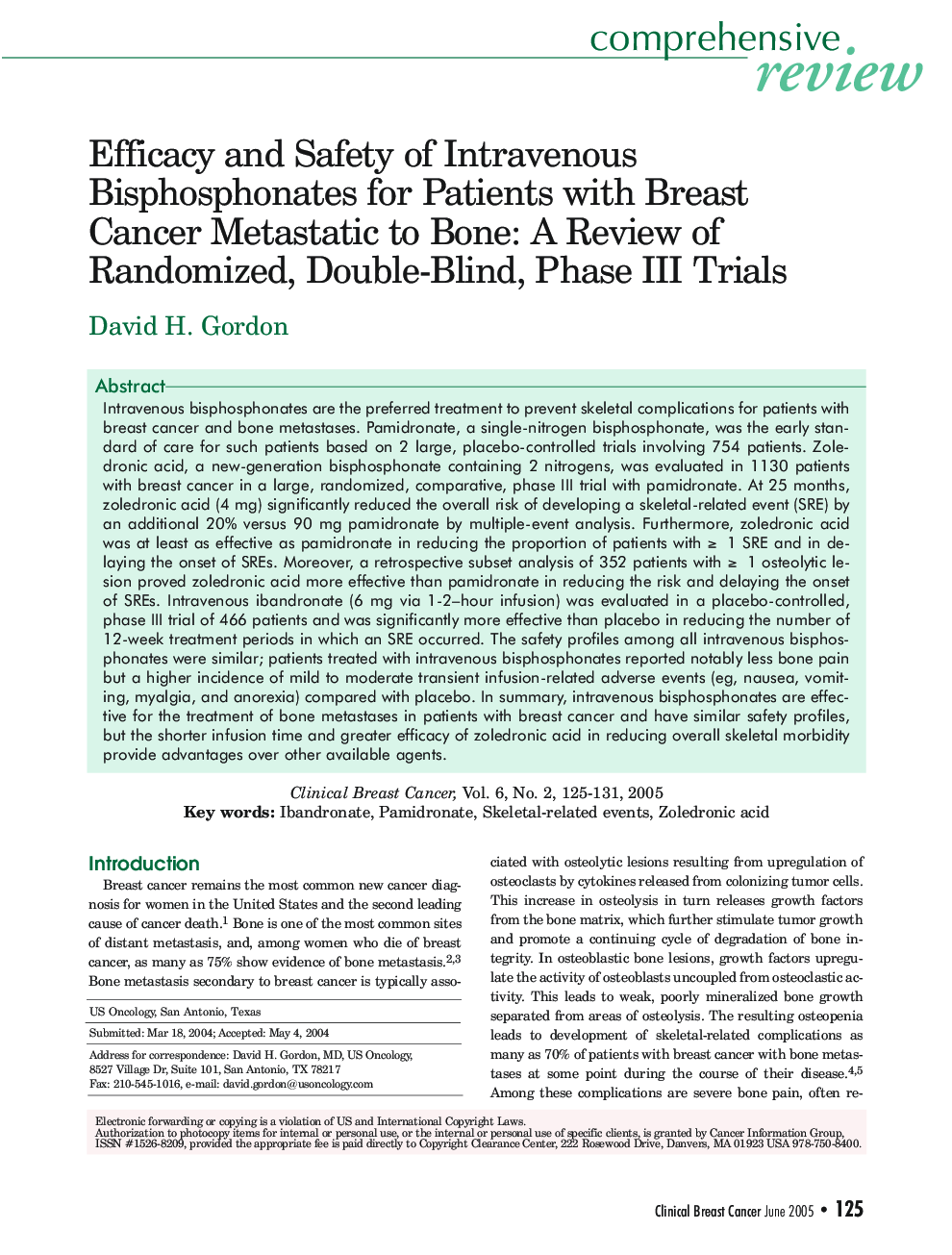| کد مقاله | کد نشریه | سال انتشار | مقاله انگلیسی | نسخه تمام متن |
|---|---|---|---|---|
| 9092934 | 1149407 | 2005 | 7 صفحه PDF | دانلود رایگان |
عنوان انگلیسی مقاله ISI
Efficacy and Safety of Intravenous Bisphosphonates for Patients with Breast Cancer Metastatic to Bone: A Review of Randomized, Double-Blind, Phase III Trials
دانلود مقاله + سفارش ترجمه
دانلود مقاله ISI انگلیسی
رایگان برای ایرانیان
کلمات کلیدی
موضوعات مرتبط
علوم پزشکی و سلامت
پزشکی و دندانپزشکی
بیهوشی و پزشکی درد
پیش نمایش صفحه اول مقاله

چکیده انگلیسی
Intravenous bisphosphonates are the preferred treatment to prevent skeletal complications for patients with breast cancer and bone metastases. Pamidronate, a single-nitrogen bisphosphonate, was the early standard of care for such patients based on 2 large, placebo-controlled trials involving 754 patients. Zoledronic acid, a new-generation bisphosphonate containing 2 nitrogens, was evaluated in 1130 patients with breast cancer in a large, randomized, comparative, phase III trial with pamidronate. At 25 months, zoledronic acid (4 mg) significantly reduced the overall risk of developing a skeletal-related event (SRE) by an additional 20% versus 90 mg pamidronate by multiple-event analysis. Furthermore, zoledronic acid was at least as effective as pamidronate in reducing the proportion of patients with ⥠1 SRE and in delaying the onset of SREs. Moreover, a retrospective subset analysis of 352 patients with ⥠1 osteolytic lesion proved zoledronic acid more effective than pamidronate in reducing the risk and delaying the onset of SREs. Intravenous ibandronate (6 mg via 1-2-hour infusion) was evaluated in a placebo-controlled, phase III trial of 466 patients and was significantly more effective than placebo in reducing the number of 12-week treatment periods in which an SRE occurred. The safety profiles among all intravenous bisphosphonates were similar; patients treated with intravenous bisphosphonates reported notably less bone pain but a higher incidence of mild to moderate transient infusion-related adverse events (eg, nausea, vomiting, myalgia, and anorexia) compared with placebo. In summary, intravenous bisphosphonates are effective for the treatment of bone metastases in patients with breast cancer and have similar safety profiles, but the shorter infusion time and greater efficacy of zoledronic acid in reducing overall skeletal morbidity provide advantages over other available agents.
ناشر
Database: Elsevier - ScienceDirect (ساینس دایرکت)
Journal: Clinical Breast Cancer - Volume 6, Issue 2, June 2005, Pages 125-131
Journal: Clinical Breast Cancer - Volume 6, Issue 2, June 2005, Pages 125-131
نویسندگان
David H. Gordon,